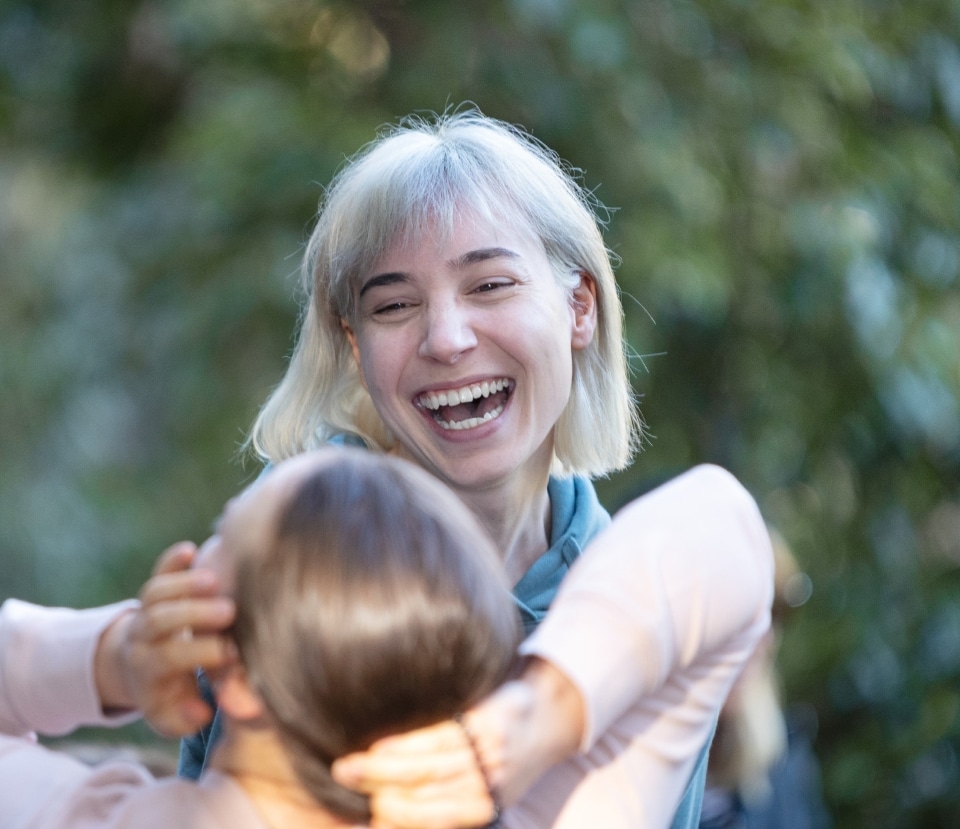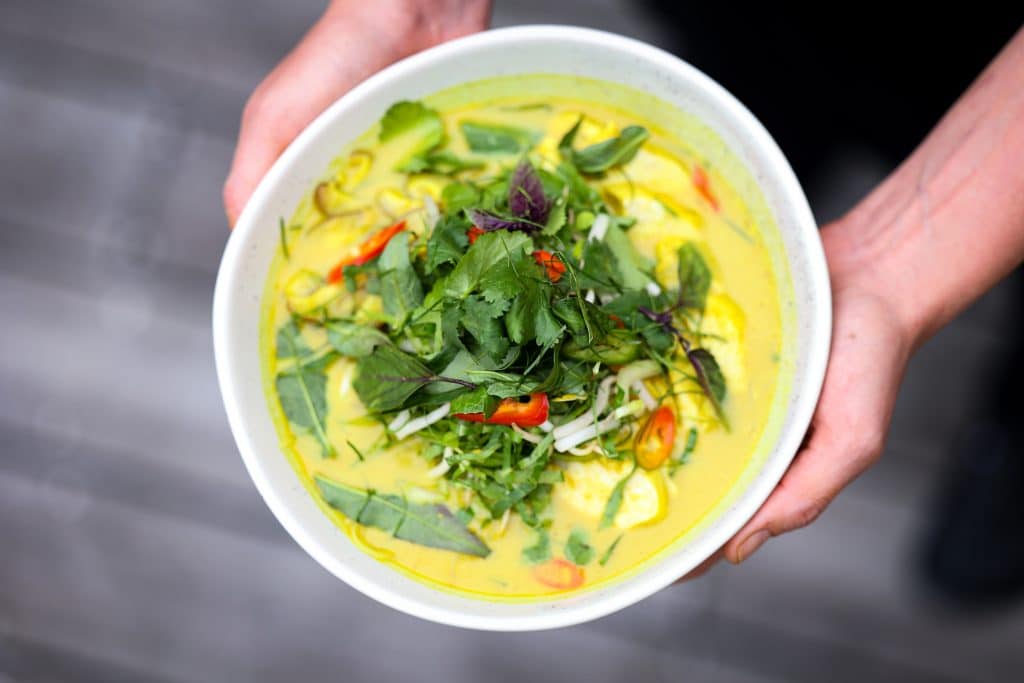‘Detoxing’ is a phrase that has circulated in the wellness space for a long time. However, as much as it is an ever-present concept when it comes to health and wellbeing, its true definition and the process within the body can be often overlooked. Although often associated with restriction, this does not necessarily have to be the case – or the sole foundation of an internal cleanse. For instance, adding certain herbs to your diet can have a powerful effect on removing toxins and uplifting your sense of health and wellbeing.
In the journal entry below, we reached out to our talented chef, Elisha Morgan, who is also a qualified naturopath. Elisha shares her expertise and insights on the topic of detoxification, as well as her top five herbs she recommends to stimulate your body’s cleansing process.
Detoxing: What it is and how it works
Detoxification is the overall term for taking harmful or no longer useful substances from within the cells and tissues of the body and transforming them from lipophilic (or fat-loving) molecules into hydrophilic (or water-soluble) substances that may then be eliminated via additional tissues and organs (predominantly the bowels) and to a lesser degree via the kidneys, lungs and skin.
The lymphatic system is a network of vessels that run alongside every blood vessel within the body, carrying out the following functions:
- Retrieving intracellular and extracellular waste (that is, the waste located in all areas outside of the blood vessels).
- Filtering it through the lymph nodes (these contain white blood cells that eliminate pathogens and is a major part of your immune system).
- Returning it to the bloodstream, which then delivers the waste to the liver for conversion and elimination.
Detoxification within the liver occurs in two phases. Phase one involves Cytochrome P450 enzymes, which transform toxins into a water-soluble form. At this stage, they become highly reactive and inflammatory.
Phase two is ‘conjugation’, comprised of six pathways in which a protein group is added to assist removal. Having this phase unregulated and able to keep up with phase one is paramount to minimise inflammatory phase one molecules from being released.
From this stage, it’s all down to good gut health for the final elimination. Constipation or disrupted gut microbiome can cause detoxified substances (especially hormones and cholesterol) to be transformed and reabsorbed back into the body, increasing the overall burden and disrupting biochemical pathways that rely on a fine balance.
Once toxins are being effectively eliminated, the benefits include:
- Bodyweight that is easier to shift
- Clear skin
- Lifted moods
- Improved digestion
- Balanced hormones
- Optimised metabolic markers, such as cholesterol

Identifying whether you need liver support
Some common signs that your liver may benefit from detoxification support include:
- Slow digestion
- Constipation or diarrhoea
- Stubborn weight gain or inability to shift excess
- Feeling of fullness with belching upon rising, and low to no appetite within 2 hours of rising
- Headaches
- Nausea
- Mood swings
- Issues with cholesterol / triglycerides
- Blood sugar irregularities
- Menstrual irregularities and symptoms of relative oestrogen excess (such as PMS, heavy bleeding, cramping)
- Skin issues such as rashes and breakouts
- Signs of accelerated ageing
How herbs can help cleanse our bodies
Herbs have been used traditionally to assist with cleansing the body and supporting the liver and current research is now able to offer evidence as to the impact these herbs have.
Herbs enhance the detoxification process in a holistic manner, supporting not only the liver but also the lymphatic system and gastrointestinal system, whilst providing antioxidant and anti-inflammatory support.
Recent research suggests extraordinary antioxidant and anti-inflammatory action of some key herbs stimulate cellular Nrf2 (a supreme intracellular pathway that upregulates the genetic expression of the powerhouse antioxidant molecule glutathione) and downregulate NF-kB, which reduces overall pathological inflammation. This is very important when detoxing and for reducing the pro-inflammatory effects of intermediate metabolites.
Top five herbs for detoxing and cleansing
Now for the good stuff! Here are my top herbs for supporting your detox journey:
1. Broccoli sprouts
These contain biochemical compounds that have been linked to boosting phase two of liver detoxification whilst stimulating the powerful anti-inflammatory effects of Nrf2 within liver cells. Basically, this makes broccoli sprouts a master liver detoxifier and supreme inflammation minimised!
You can grow broccoli sprouts at home and add them daily to salads and juices. A good quality green supplement powder containing adequate amounts of broccoli powder is also an excellent choice and can be easily added to water or smoothies.
2. Milk thistle (Silibum marianum)
A beloved liver herb used to boost phase one detoxification whilst supplying valuable antioxidant and anti-inflammatory benefits. Research also suggests it provides liver-protective qualities and boosts the regeneration of injured liver cells.
At home, this herb can be added to tea – enjoy two to three cups per day to reap maximum benefits! Otherwise, a well-formulated supplement that contains adequate amounts of the herb can be used as directed.

3. Turmeric (Curcuma longa)
Best known for its potent anti-inflammatory and antioxidant effects (thanks to the compound curcumin), turmeric provides additional detox benefits through the support of phase two liver detoxification.
Tumeric is fantastic to add into your diet daily in fresh or powdered form. However, to enjoy the benefits to the fullest, the bioavailability of curcumin is increased when consumed with black pepper and a source of fat. Think delicious curries and punchy turmeric elixirs with citrus. Click here to download our free ebook A Taste of Eden for inspiration.
4. Green tea (Camellia sinensis)
Another powerhouse antioxidant herb that is crucial for minimising intermediate metabolite inflammation during the detoxification process. Enjoy green tea daily and consider including a good quality matcha powder (whole young green tea leaves) into daily smoothies and juices.
5. Dandelion (Taraxacum officinale)
Used in herbalism to stimulate the gallbladder, support liver detoxification, provide antioxidant support to liver cells and act as a gentle diuretic. Employing a gentle diuretic (along with drinking plenty of water) optimises the removal of waste from the kidneys.
Dandelion tea and roasted dandelion ‘coffee’ can be great at-home options to include this herb in your diet. Plus, including either raw or lightly cooked dandelion greens in meals stimulates the gallbladder with their bitter flavour notes.
Tip: Don’t forget water and fibre! These assist kidney and bowel removal of waste, and to get the most benefit, give yourself a break from alcohol, moderate your caffeine intake and opt for whole foods to keep your liver fed with nutrients. Additional detox help can be found in sweating (exercise and saunas), dry skin brushing and general movement, which all assist lymphatic circulation.
Nourishment at Eden
At Eden Health Retreat, dining is a core part of the experience. Every meal is included, curated by our team of chefs to provide you with the nourishment your body craves to restore balance and wellness. To discover more about the dining experience, click here.

About Elisha
My name is Elisha Morgan, I am a member of the Eden kitchen team and a degree-qualified naturopath specialising in nutrition, western herbalism and lifestyle medicine with two years of clinical experience.
Common conditions I see in the clinic are female hormone imbalances, metabolic abnormalities, mood disorders and gastrointestinal conditions. One thing all of these presentations have in common is the reduced ability of the body to detoxify and eliminate substances no longer needed that can cause cellular damage if left to accumulate within the body.





